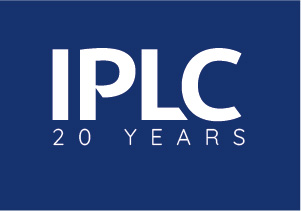How retailers in Europe address sustainability with Private Label
Successful businesses have a clear strategy; they know where they are now and where they want to go in the future. For grocery retailers, the direction of travel is clear – more and more of their sales are through private label products. This presents both an opportunity and a challenge. The opportunity is for retailers to express their unique identity and their strategic objectives through their private label ranges. The challenge is that retail brand managers now need to think about more than just their own objectives.
In a world where equality, health, climate and the Corona crisis are daily conversation topics, businesses need to think about what they can do to rise to these generation-defining challenges. To harness widespread action, in 2015 the UN created the 17 Sustainable Development Goals (SDGs). The SDGs represent the most impactful ways for businesses, governments and ordinary people to address the biggest challenges faced by humankind, “a blueprint for peace and prosperity for people and the planet, now and into the future”.
It is obvious that the our industry has a responsibility to act in support of the UN SDGs, and with private label a growing part of their offer, grocers are in a unique position to lead the charge. Therefore, IPLC surveyed the market to see what the big retailers were saying about sustainability both online and in-store.
We observed that the sustainability challenge is highly dynamic. The goalposts are moving continually in such a way that consumers are confused as to the ‘right’ things to do, and retailers are reacting in different ways in different countries.
Coordinated activity is required to harness consumers, businesses and governments to act together. In the world of private label, the key is collaboration. Retailers demand a continuous supply of safe, healthy, high-quality, high-integrity consumer goods.
However, to deliver on these demands and maintain a competitive price position, retailers and suppliers will need to commit to longer-term contracts that allow manufacturers to invest in new technology and see a return over a longer period, safe in the knowledge that they will not lose the business after a year.
We also found that many retailers had already made sustainability part of their ethos, long before it was on the consumer’s radar. In highly competitive markets, sustainability actions help to reduce costs since they generally involve using less resources, energy and materials. This approach means that the discounters are sustainability fanatics, that have been living and breathing the principles of corporate frugality for many decades already. Finally, with the retail private label brand managers starting to make ambitious commitments on sustainability, the pressure is on the A-brands to get their act together.
Research setup
In January 2020, IPLC’s ten partners surveyed the market in eight EU countries. Firstly, an analysis was made of what more than 50 retailers communicate with regard to their sustainability strategies and objectives on their websites and in annual reports. Secondly, a large number of stores were visited to assess what has become visible in terms of tangible results on the shelves. We specifically looked for initiatives taken with private label as retailers are aware that in this area in particular, they are in a unique position to make a difference.
Managerial relevance
We believe our research is relevant for both retailers and suppliers. For retailers it is important to assess how their objectives and actions compare with competitors in their market and what they can learn from initiatives taken in other countries. For suppliers – growers and private label
manufacturers alike – it is crucial to understand what is on the sustainability agenda of their retail clients and how they can respond to this to support them in achieving their objectives. This will enable them to better prepare for retail client visits. A proactive attitude as well as commitment to support retailers driving the sustainability agenda may lead to a deeper engagement with their retail clients.
Furthermore, this survey has significant value for the supply industry (packaging and ingredients) and other professionals active in the agro-sector and private label supply chain.
COVID-19 Impact
The majority of the research work for this report was completed before Covid-19 hit the world. Indeed, all of the policies, strategies and initiatives we saw in retailers as part of the research for this report were developed long before Covid-19 appeared. It is fundamentally clear that the crisis will potentially bring lasting change to the European and world food supply chain, offering an opportunity to break with old habits and build a more circular and sustainable food supply chain. At IPLC we have identified a few potential themes that will have an impact on the sustainability agenda resulting form the Covid-19 crisis.
To download the full report


